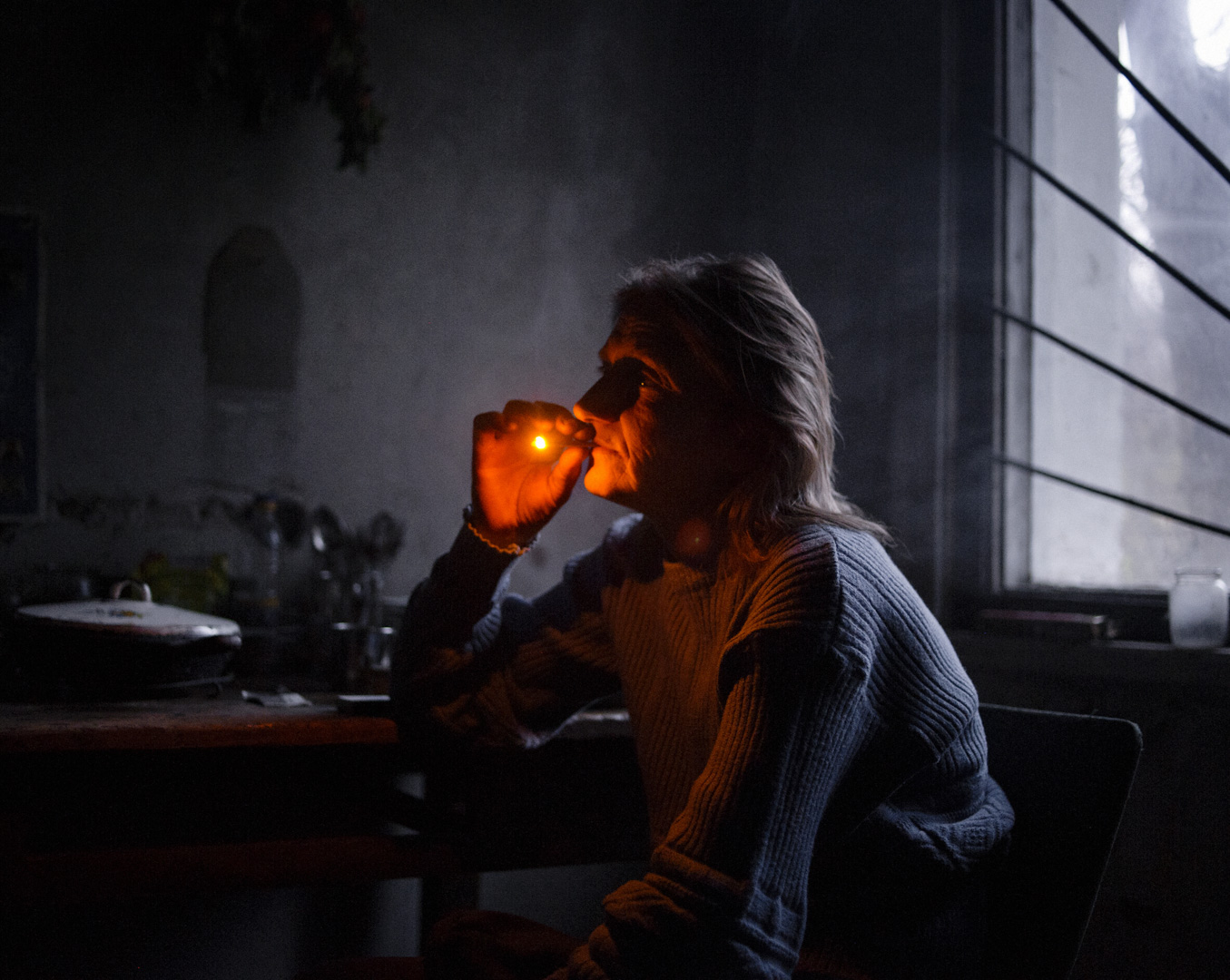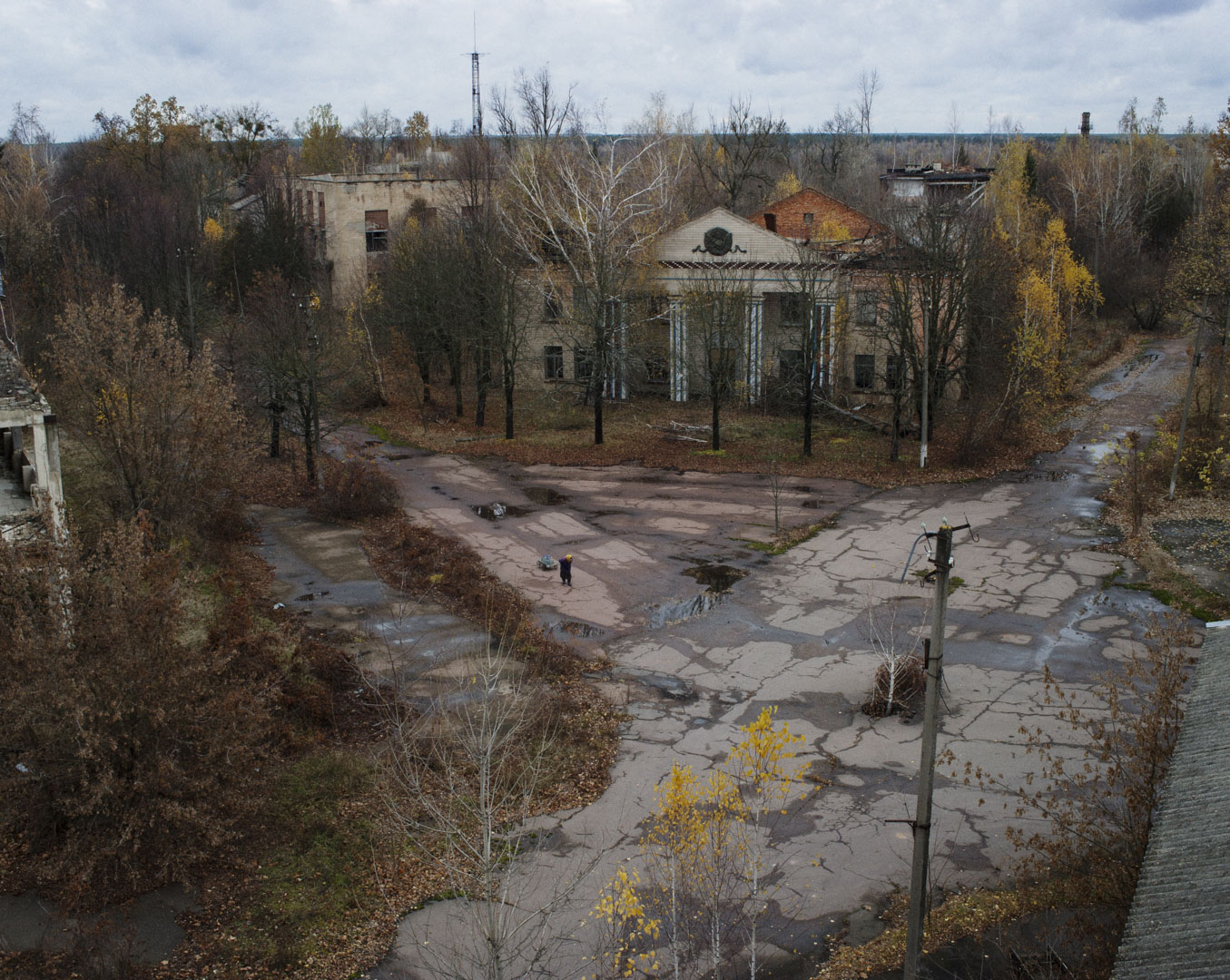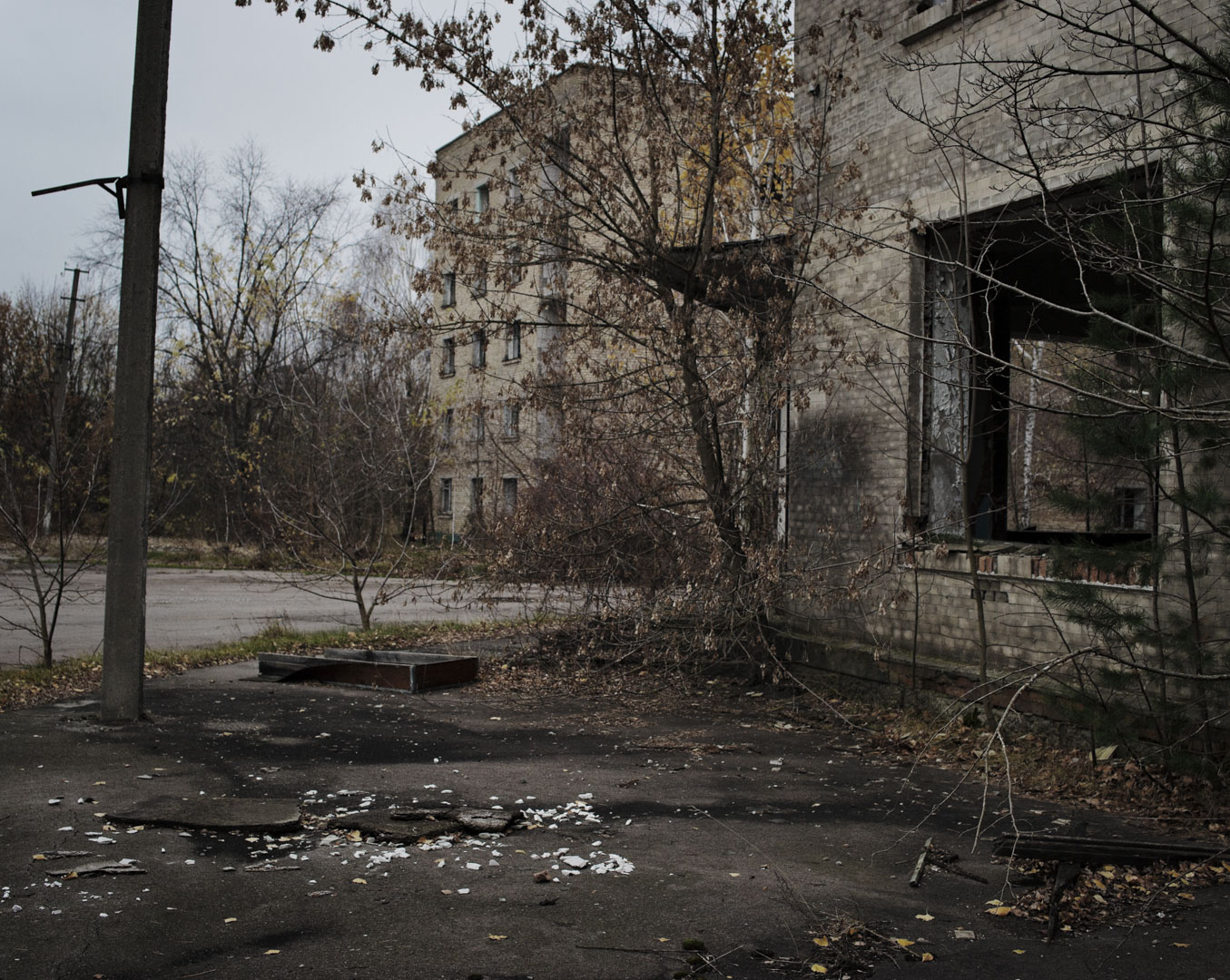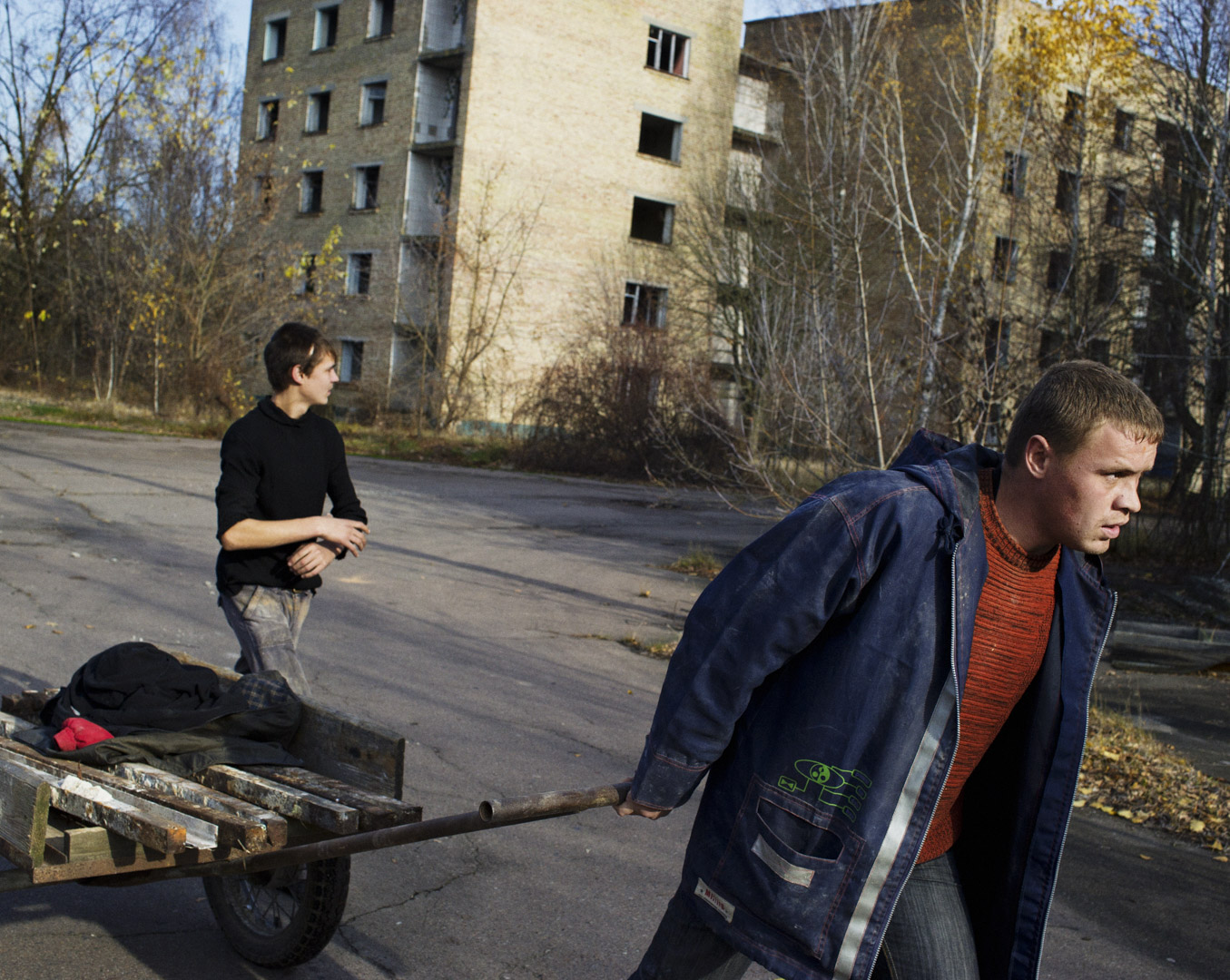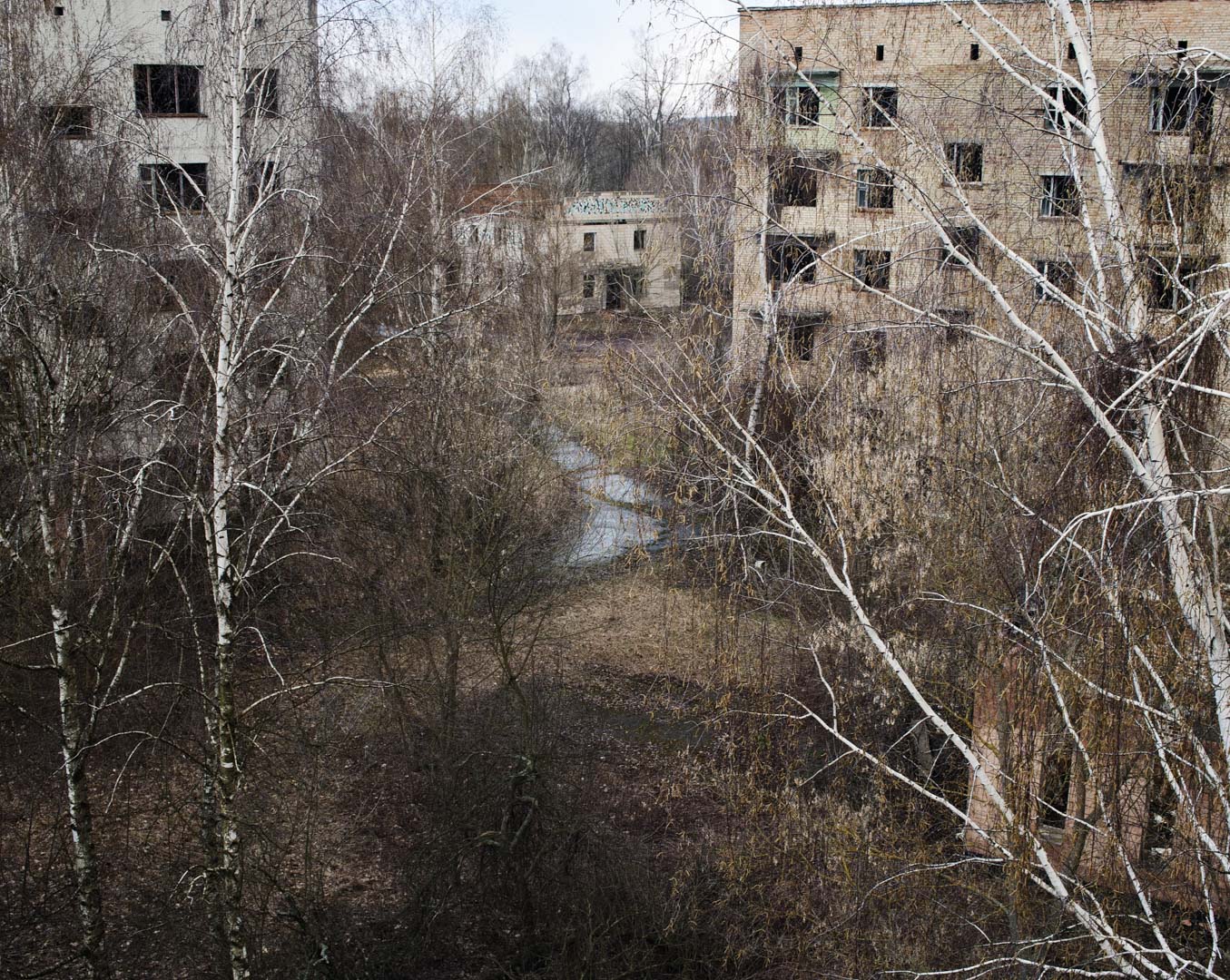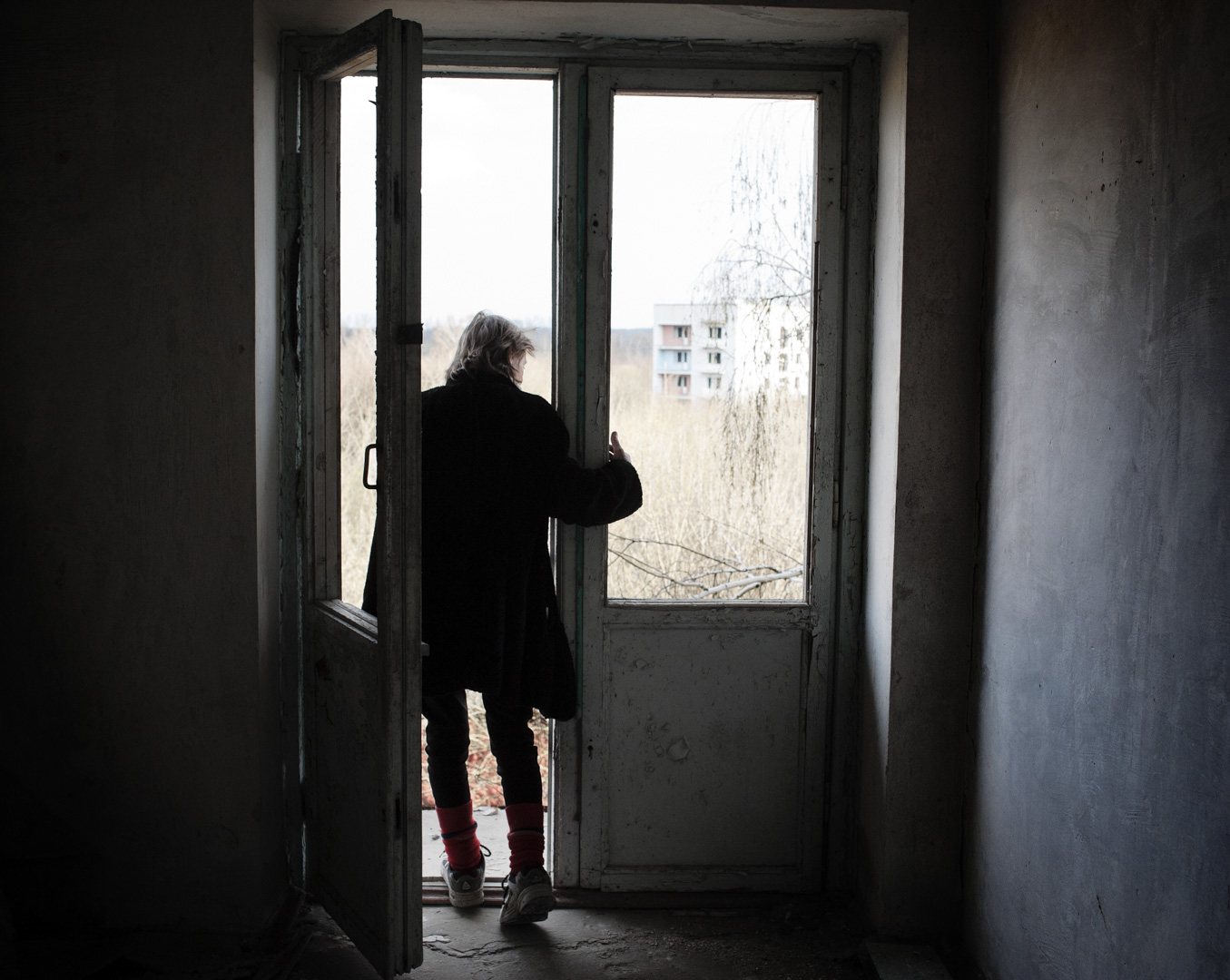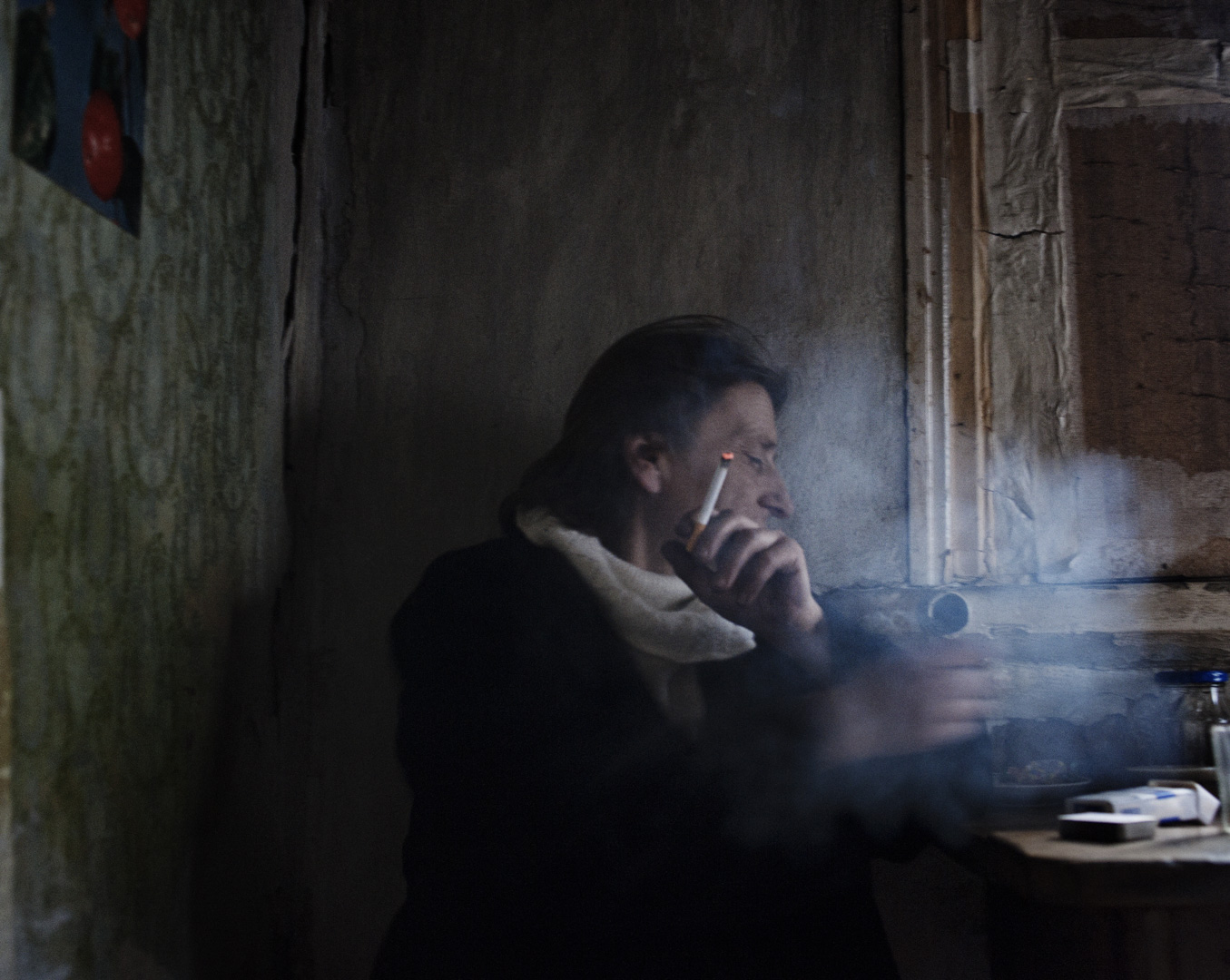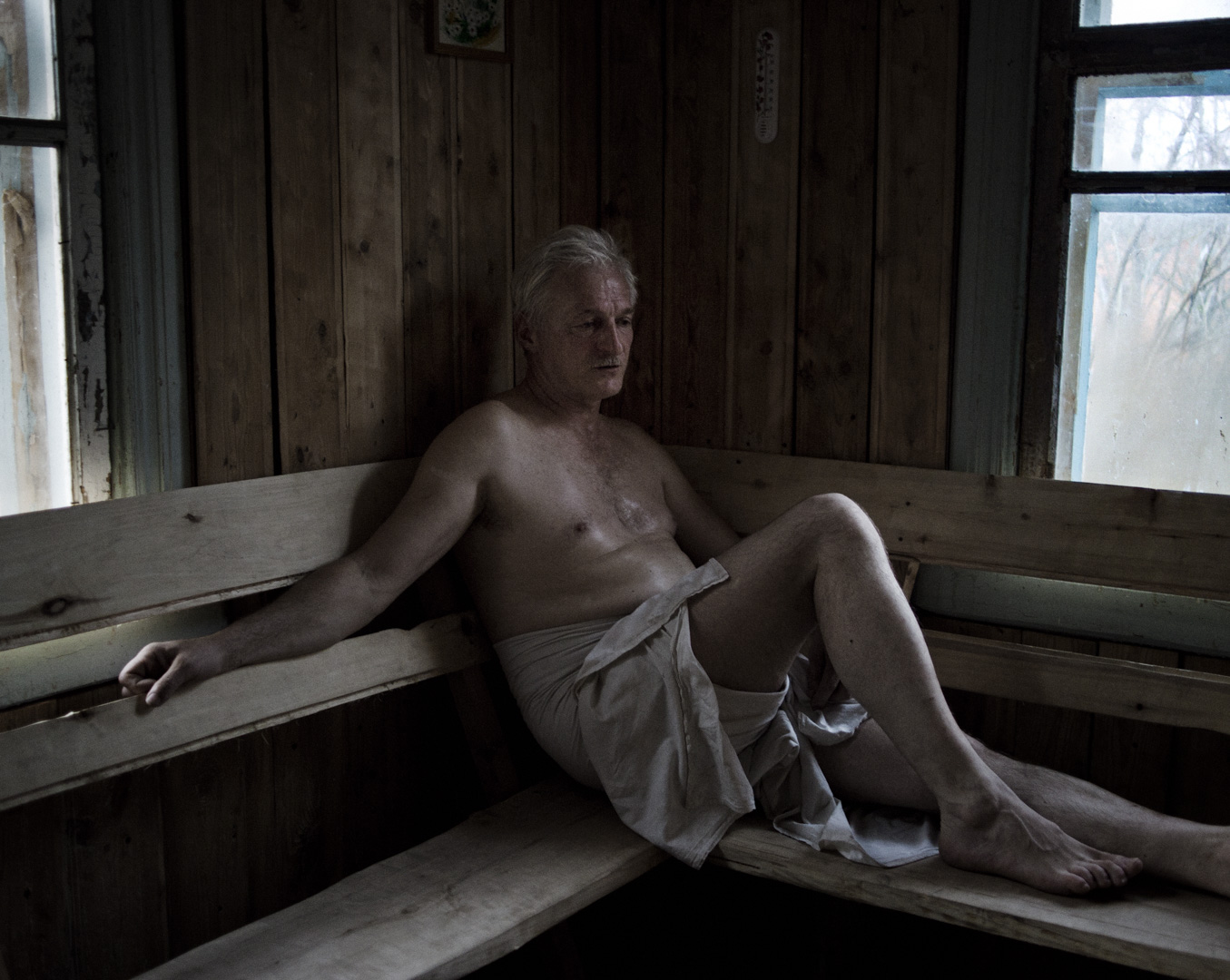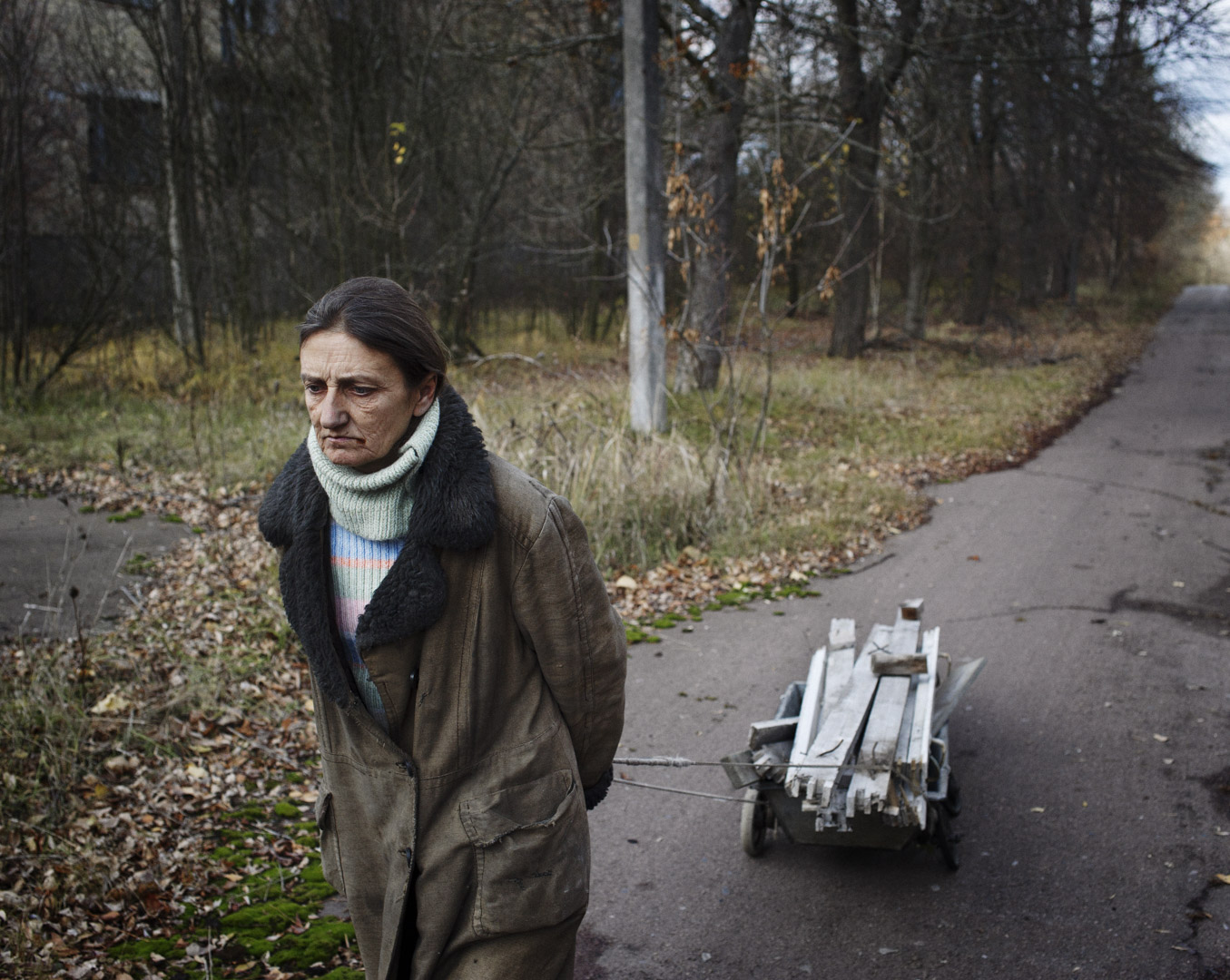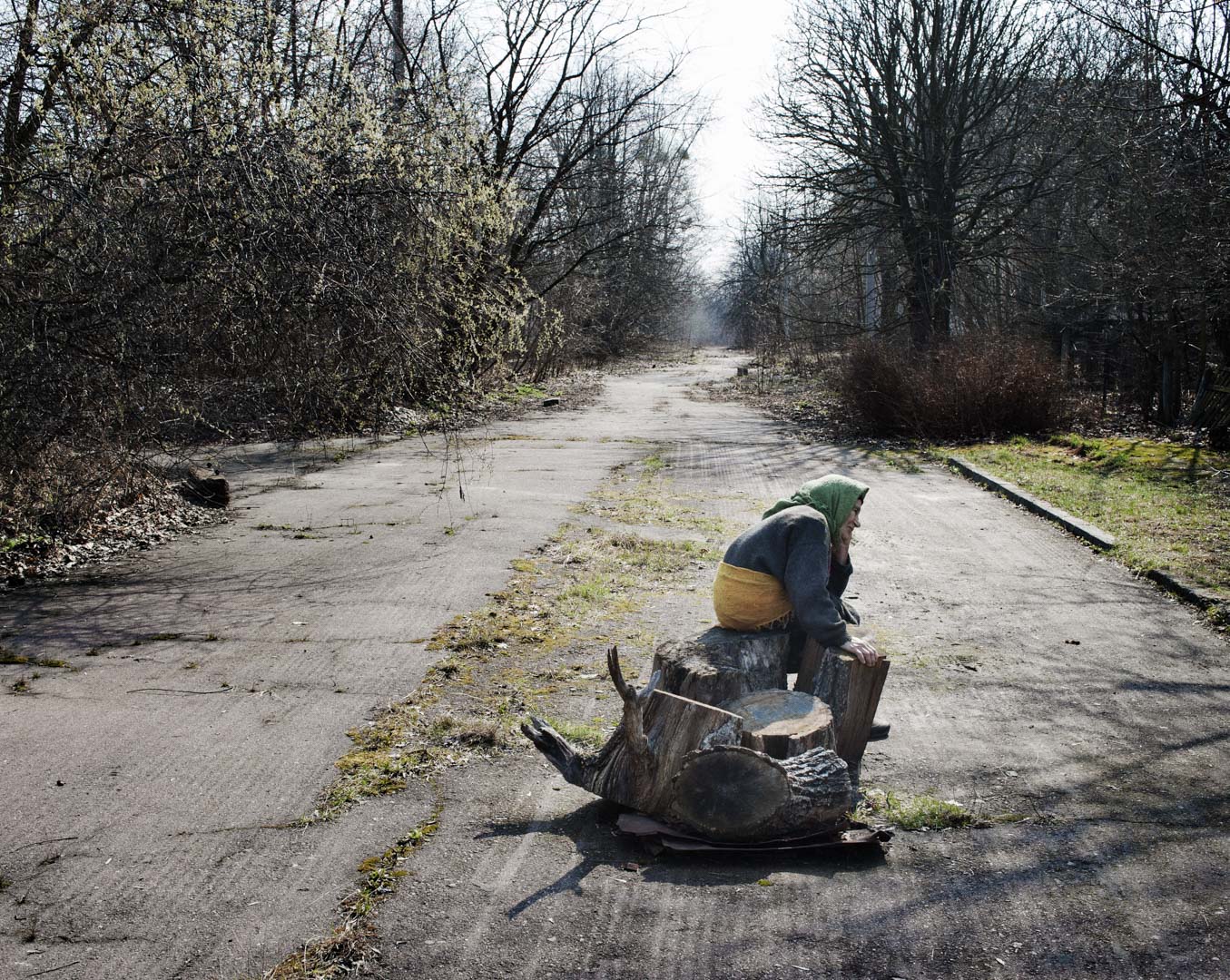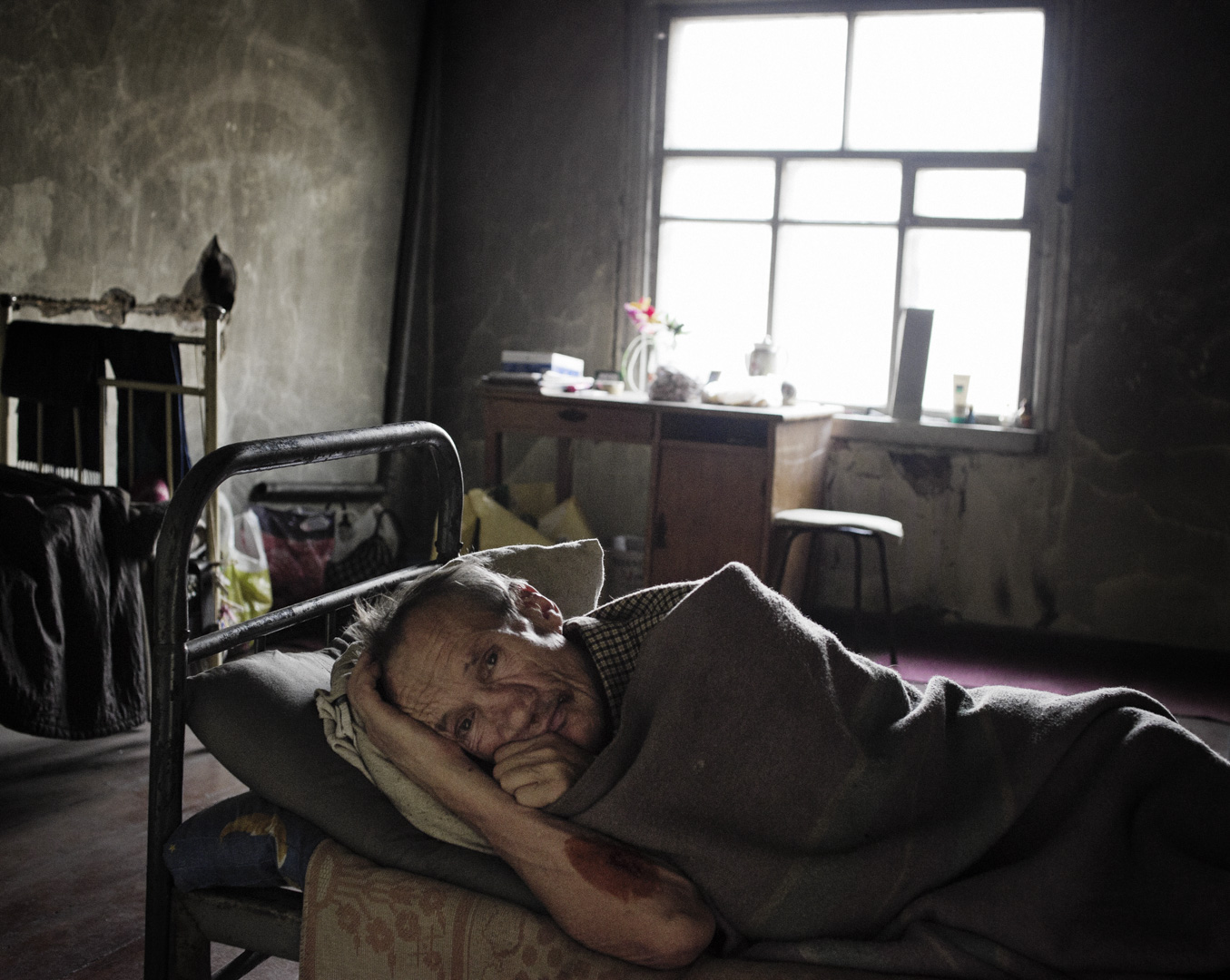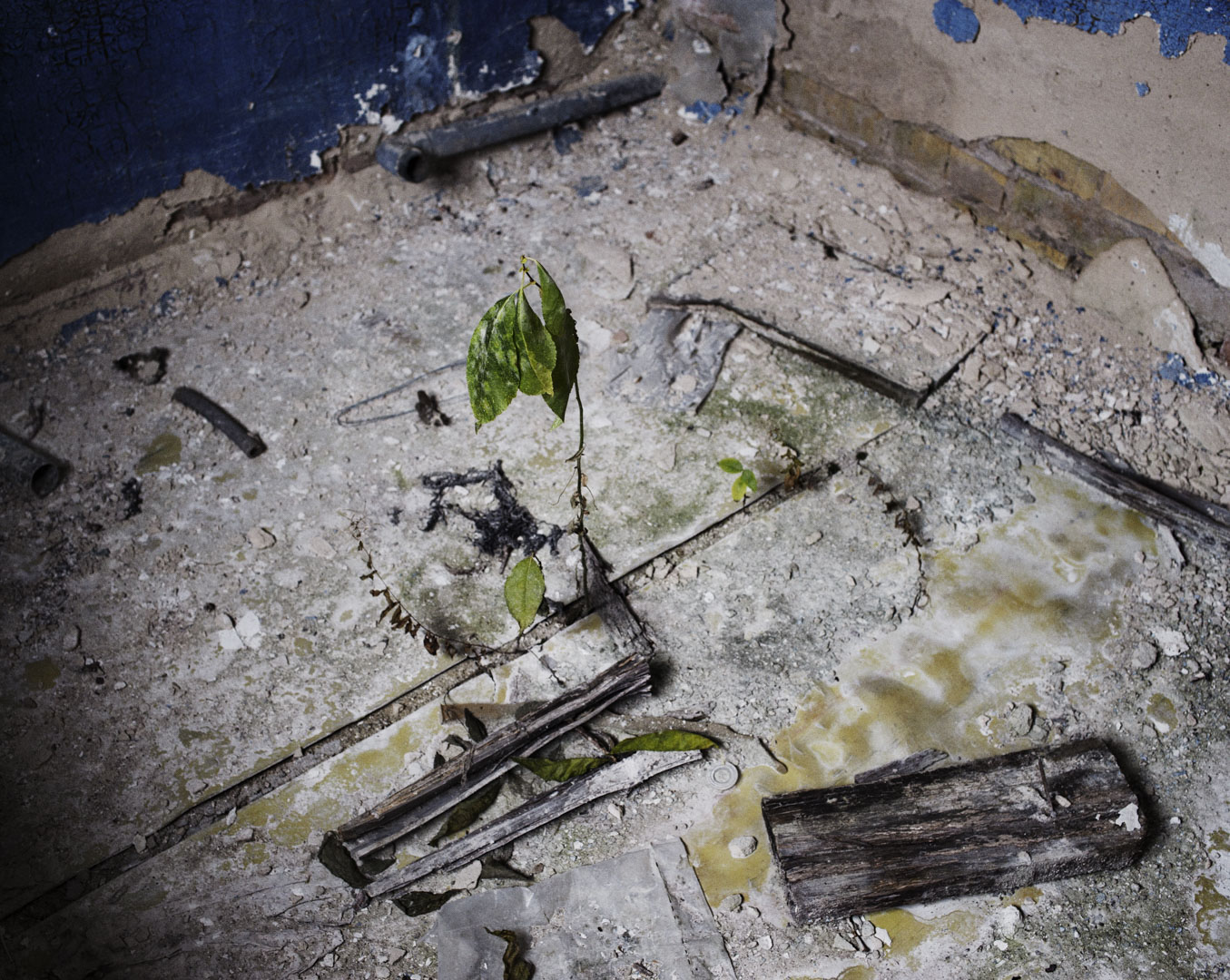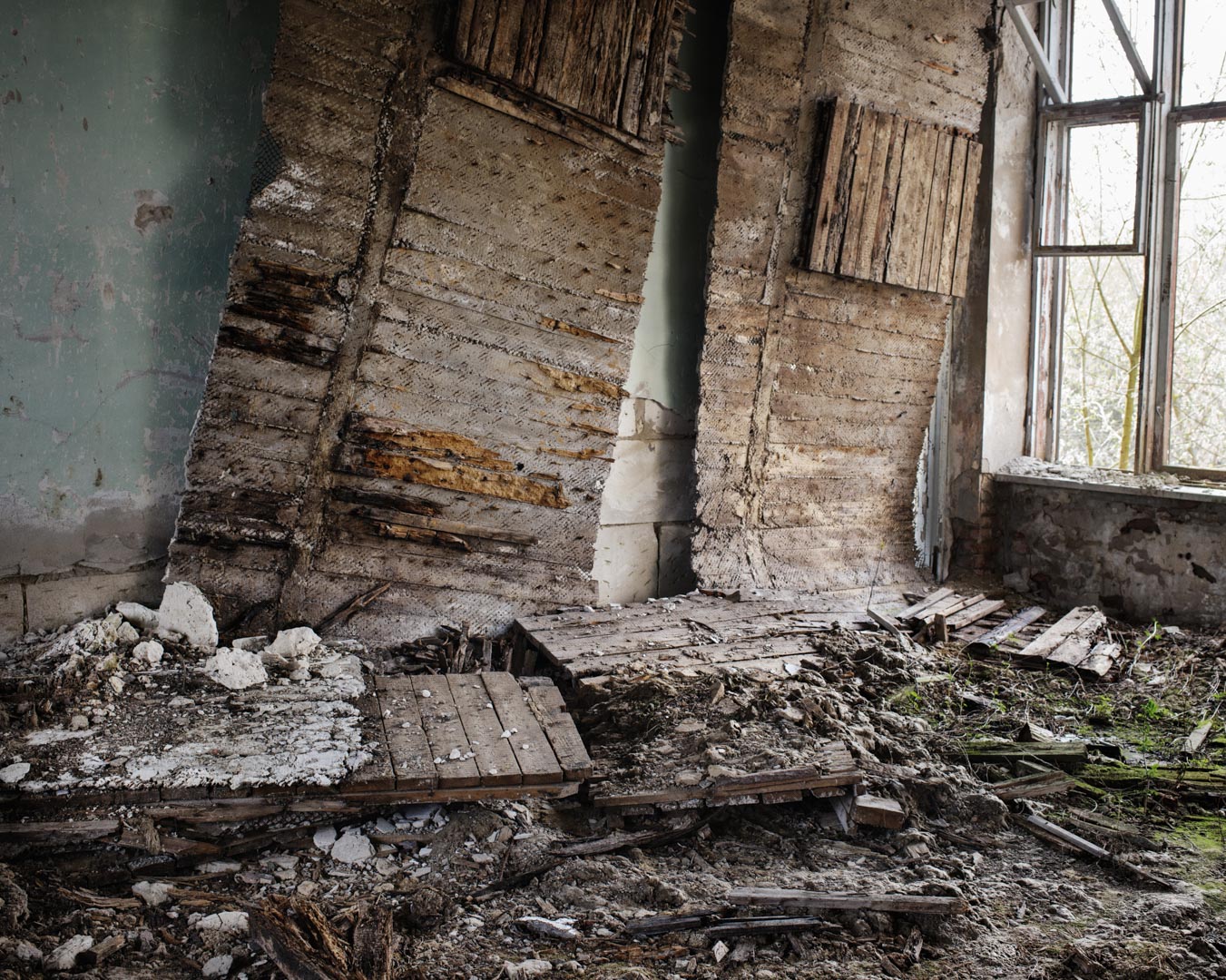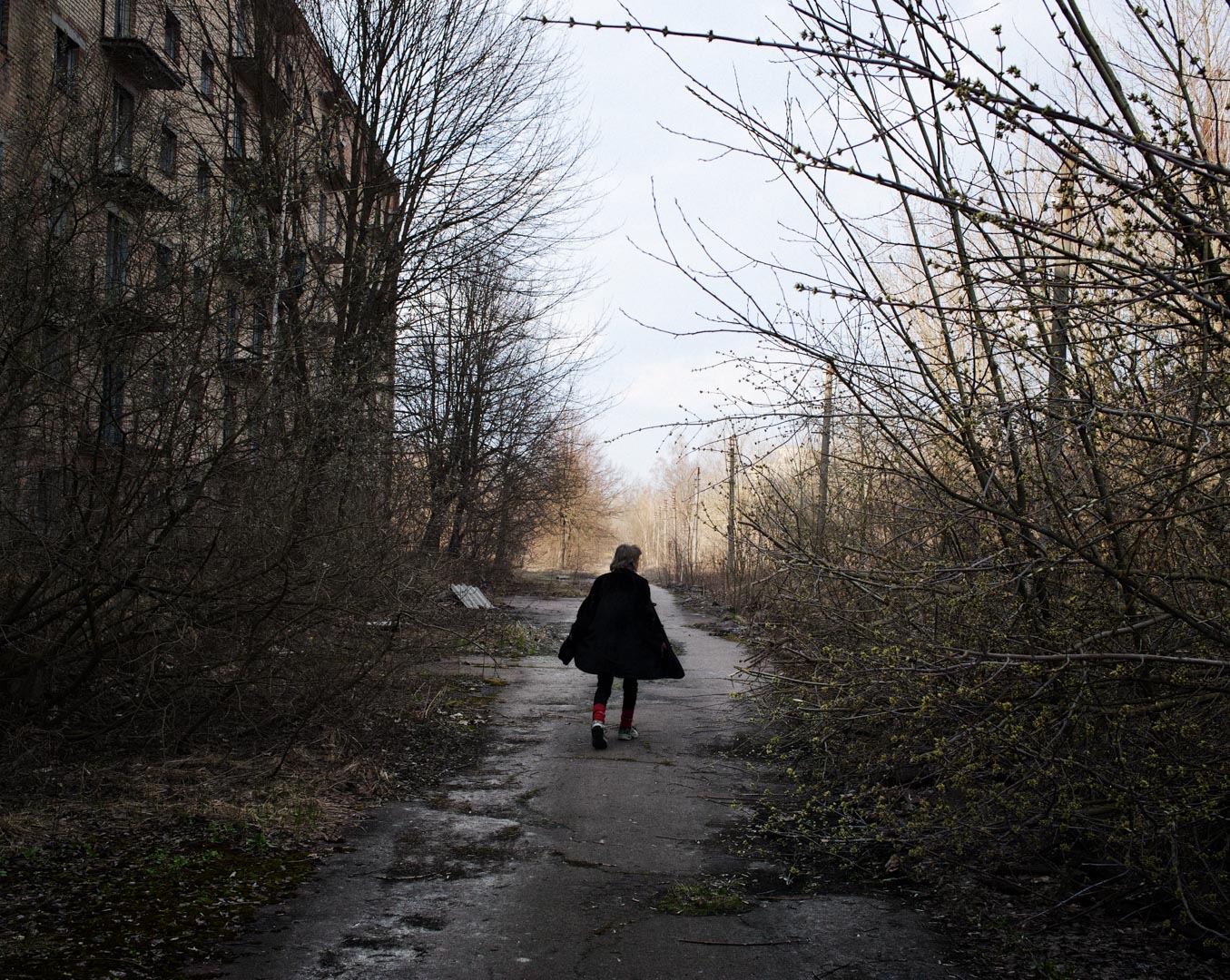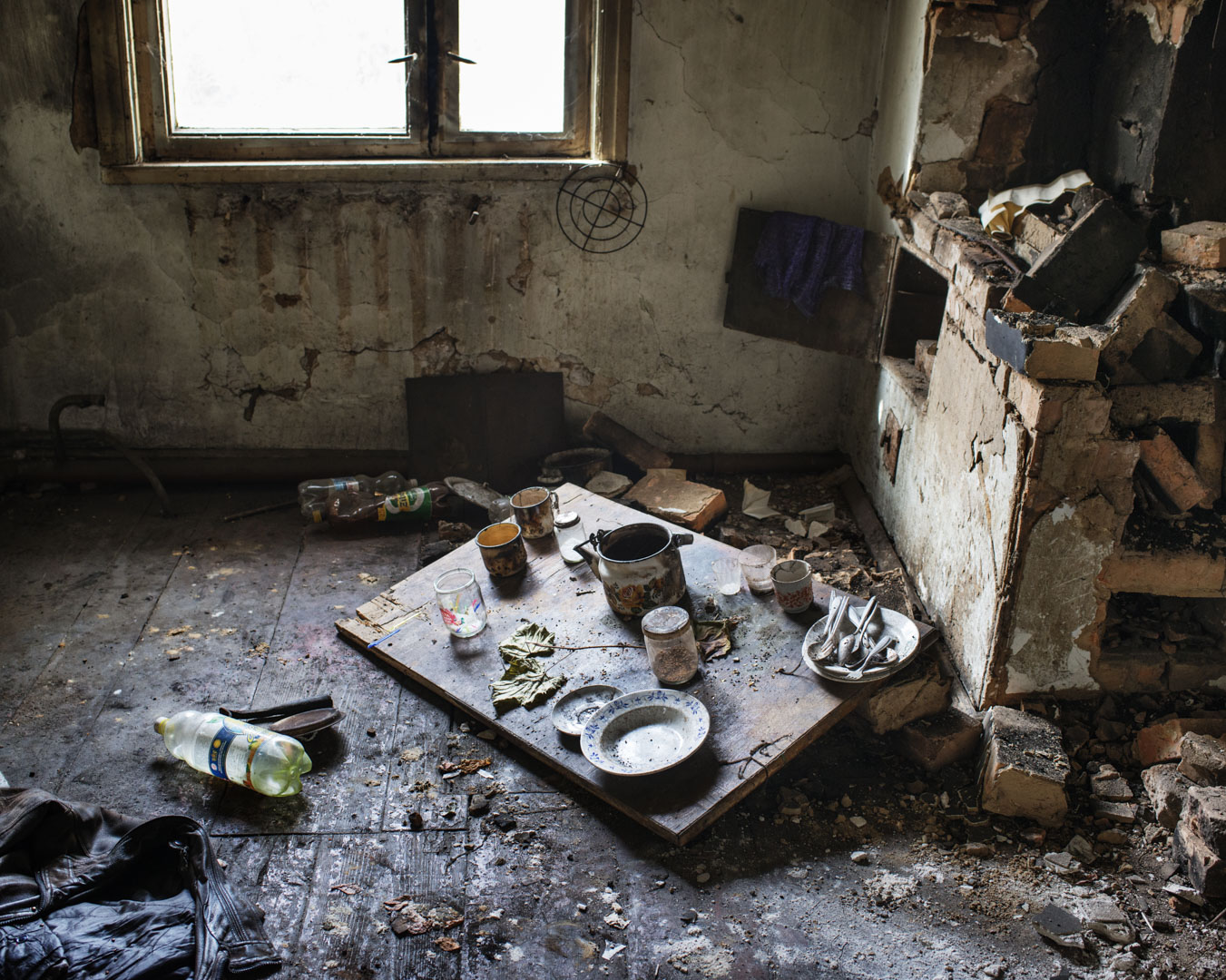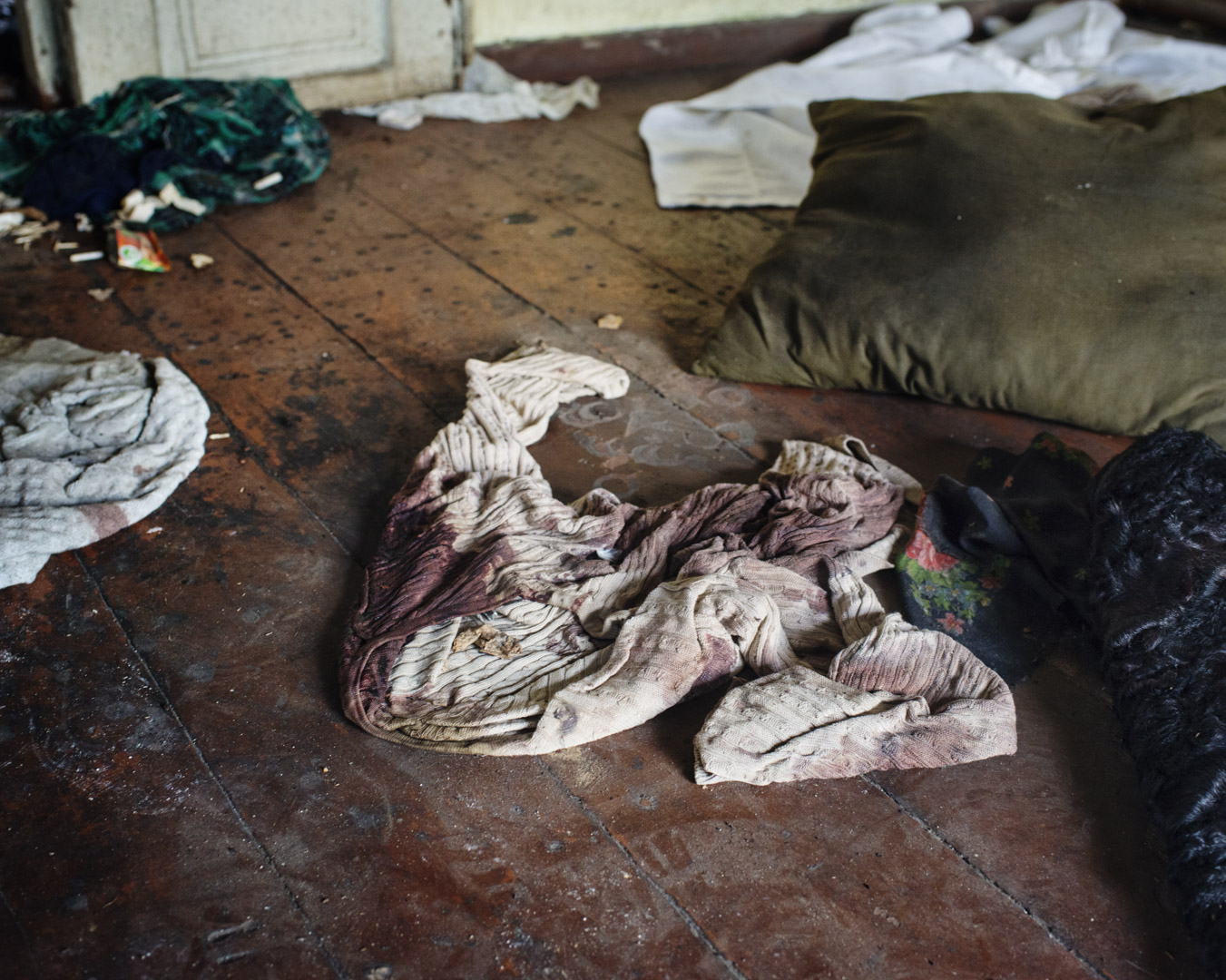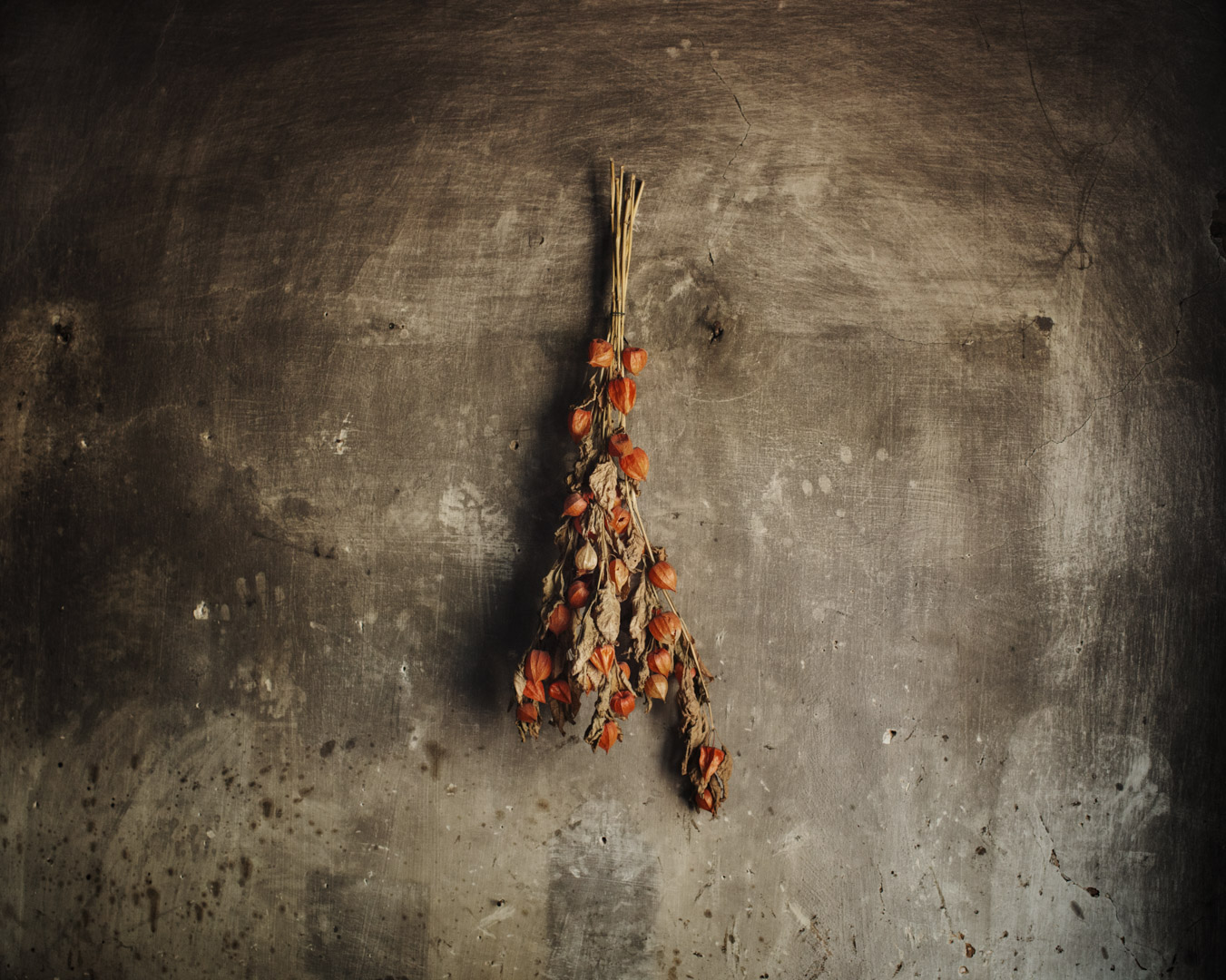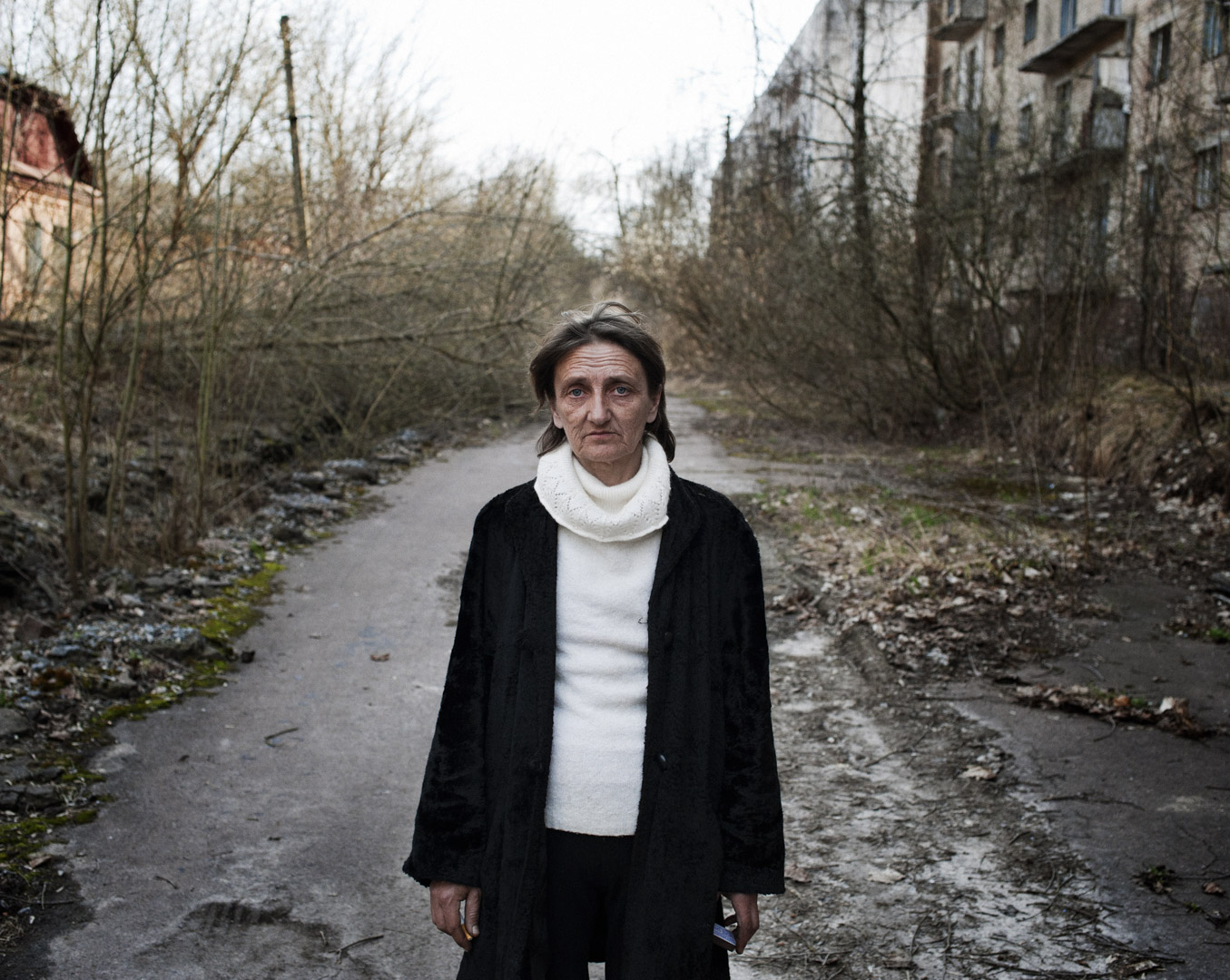Larissa, 2016
Poliske, a town of 11,000 inhabitants evacuated 6 years after the disaster.
The end of the world. The lifeless streets. The radiometer crackling on the contaminated plates. Packs of stray dogs. Disturbing silhouettes in the bushes. The sound of Stalkers’ hammers tearing through the metal of abandoned houses.
And then, in the distance, I had seen Larissa, dragging her cart.
Larissa, thin, brunette, her face marked. She lived here with about ten people, most of them elderly.
Larissa used to live in the centre, in a building. She worked for the town hall. After the disaster, she had helped the inhabitants left the city and she chose to stay.
Why leave elsewhere? To go where? To Kiev? And join the ranks of the unemployed?
No. To stay. To find a wooden house. To go back to the time of the harvest. To get water from the fountain. Sell metal. And with the few grivnas, buy cigarettes at the street grocery shop.
The Chernobyl zone is a nightmare. It is also a refuge.
When I returned in April 2016, the city centre had changed little. The birch tree that used to grow through the manhole is bigger. The murals in the Palace of Culture have disappeared. The metal looters have deserted, replaced by young illegal hikers from Kiev.
Karl Marx Street. Larissa’s house is still standing. The garden is not maintained. The gate is closed. I knock. She doesn’t answer. I go inside. The kitchen is devastated, the fireplace broken, the table on the floor. There are in a jar, the fluorescent cocktail picks that we had bought for a festive dinner organised on the last day we spent together. Dried red flowers are still hanging on the wall.
In the bedroom, the beds have disappeared. A few objects remain. Plates from the Chernobyl canteen, wool, old syringes, a photo. And there is a pile of clothes belonging to Larissa. In the centre is a bloody jumper. A thick, red stain that starts at the top of the collar and ends on the chest.
As I left the town, the last four inhabitants told me that Larissa had died six months earlier. Alone, lying in bed. Her body was found by the fire brigade three days later. She had cancer in her throat which she wasn’t treating.
She had made the choice to live out of the world, in the abyss of history. A form of freedom in spite of the danger. She died. Forgotten by all.
Like a shadow.
Her name was Kramarova Larissa Olexandrivna. 1961 – 2015
